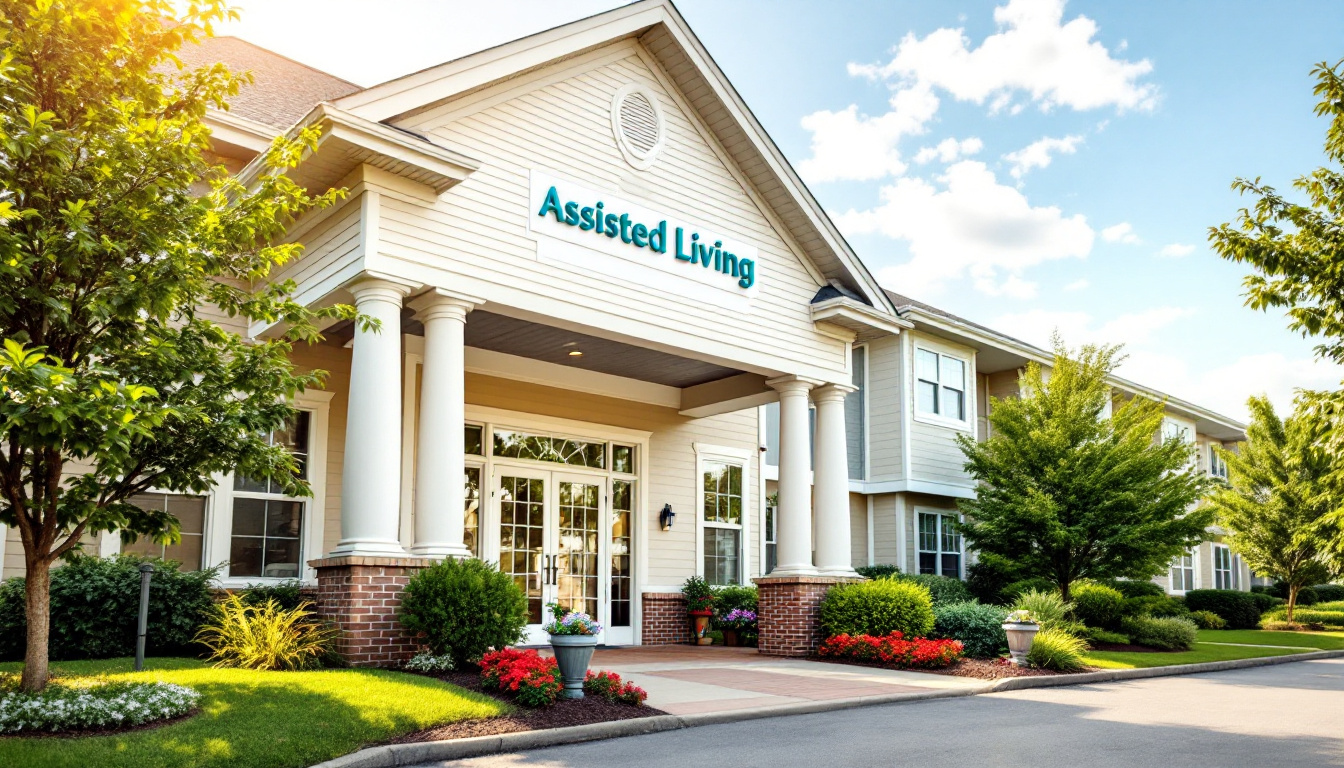How to Ensure Your Loved One’s Financial Needs Are Addressed in Senior Care
Navigating the Financial Maze of Senior Care

Understanding the Financial landscape of Senior Care
Addressing the financial needs of your elderly loved ones can seem daunting when considering senior care. Proper planning and knowledge of available resources can ease this burden significantly. This guide delves into practical financial management strategies and legal considerations, ensuring your loved ones receive the care they deserve without facing unnecessary financial strain.
Understanding and Preparing for Senior Care Costs

Calculate and Budget for Senior Care Costs
When caring for aging loved ones, it’s essential to understand and budget for the potential costs involved. Seniors often face significant expenses related to healthcare, housing, and daily living assistance. Begin by calculating expected costs, including:
- Healthcare: Even with Medicare, out-of-pocket expenses can rise significantly, sometimes reaching hundreds of thousands of dollars over retirement.
- Housing: Options range from assisted living to nursing homes, each with varying costs based on services and care levels.
- Daily Living Expenses: Incorporate utilities, groceries, and other routine costs to create a comprehensive budget.
Establishing an emergency fund for unexpected expenses, such as medical treatments or urgent repairs, is also advisable.
Assess Different Senior Living Options
Evaluating different senior living arrangements is crucial in managing care effectively. Options include:
- Independent Living Communities: Ideal for seniors who can manage activities of daily living without assistance.
- Assisted Living Facilities: Provide support with daily activities while promoting independence.
- Nursing Homes: Offer higher levels of medical care for those with more extensive needs.
Caregivers should assess each facility's atmosphere, access to healthcare, and compliance with safety regulations to ensure a comfortable environment.
Understanding Associated Fees and Services
As you explore senior living options, it’s vital to clarify associated fees and services. Costs can vary significantly between facilities and may include:
| Service | Possible Fees | Notes |
|---|---|---|
| Daily living assistance | Monthly service fees | Charges may vary based on care level |
| Healthcare services | Copays for medications and treatments | Review if included in monthly fees |
| Activities and amenities | Recreational fees | Often optional but enhance life quality |
Understanding these details can help prevent unexpected financial burdens for caregivers and families.
Obtaining Legal Authority: The Power of Attorney

Importance of Power of Attorney
Obtaining a power of attorney (POA) is essential for managing an elderly loved one's financial matters. This document allows you to make legally binding decisions on their behalf, especially when they are no longer capable due to health issues. A durable power of attorney ensures that a trusted individual can oversee financial affairs, thus safeguarding assets and ensuring timely bill payments.
Types of Power of Attorney
There are various forms of power of attorney, each serving different needs:
- General POA: Grants broad authority to the agent to make decisions on behalf of the principal.
- Durable POA: Remains valid even if the principal becomes incapacitated; crucial for ongoing financial management.
- Healthcare POA: Specifically addresses medical and healthcare decisions when the individual cannot express their preferences.
Legal Steps to Obtain Power of Attorney
To secure a power of attorney, you typically need to follow these steps:
- Discuss with the Senior: Open communication with the elderly loved one about their wishes is paramount.
- Select an Agent: Choose a trustworthy individual to act on their behalf.
- Draft the Document: Use legal forms that comply with your state's laws. Many online services provide customizable templates.
- Sign and Notarize: Both the principal and the agent must sign the document, often requiring a notary public.
- Distribute Copies: Share the signed POA with relevant parties, including financial institutions and healthcare providers.
What legal considerations and documentation are necessary for managing a senior's finances?
Managing a senior's finances involves several key legal documents, including a durable power of attorney for finances, a living trust, and a will. The durable power of attorney allows a designated individual to make financial decisions if the senior becomes incapacitated, while a living trust helps manage and distribute assets without going through probate. It is also vital to prepare advance healthcare directives, which outline the senior's medical wishes and appoint a healthcare power of attorney. Additionally, maintaining organized documentation of financial accounts, tax returns, and other relevant financial information is important for effective management and applying for benefits. Finally, seniors and their families may consider professional assistance from financial advisors or accountants to ease the burden of financial management.
Safeguarding Against Financial Abuse

Identifying Signs of Financial Abuse
Caregivers should be alert to subtle changes that may indicate financial exploitation. Look out for:
- Unexplained withdrawal of large sums from accounts
- New friends who appear to be involved in financial transactions
- Sudden changes in spending habits, like unusual purchases or donations
- Altered wills or legal documents that the elder cannot explain Monitoring these indicators can help caregivers take prompt action when necessary.
Protective Measures Against Elder Financial Abuse
Implementing protective measures is critical. Here are some steps caregivers can take:
- Establish a durable power of attorney to ensure a trusted person handles financial matters if the elder becomes incapacitated.
- Set up joint accounts strategically, allowing caregivers to monitor finances while still respecting the elder's independence.
- Educate loved ones about common scams and fraudulent tactics to foster awareness and caution.
- Use financial monitoring services like Carefull, which helps detect unauthorized transactions and provides ongoing account oversight.
Role of Caregivers in Financial Protection
Caregivers play a crucial role in financial management and protection. Their responsibilities include:
- Keeping financial documents organized and accessible to avoid misunderstandings or misuse.
- Regularly reviewing budgets and spending habits of loved ones to identify any anomalies.
- Maintaining open communication with elders about their financial situation to foster trust and transparency.
- Consulting financial advisors for expert guidance on managing funds effectively.
By taking these steps, caregivers can significantly reduce the risk of financial abuse, ensuring their elderly loved ones are protected both financially and emotionally.
Role of Government Programs and Insurance in Financing Care

Exploring Medicaid, Medicare, VA Benefits
When it comes to financing senior care, government programs play a pivotal role. Medicaid offers vital assistance for individuals with low income, potentially covering costs for nursing home care or in-home services. Medicare, primarily for those over 65, helps cover hospital stays and medical treatments but typically does not cover long-term custodial care. Furthermore, veterans may qualify for the VA Aid and Attendance Pension, which can provide additional financial assistance for those needing help with daily activities.
Understanding Long-Term Care Insurance
Long-term care insurance is another essential mechanism for financing elder care. These policies can cover costs related to assisted living, home care, and nursing facilities, thus protecting personal savings from depleting too quickly due to high care expenses. Families should carefully review policy options to ensure they meet their loved one's anticipated care needs.
How Social Security Aids Senior Care
Social Security benefits are a lifeline for many seniors, providing a steady monthly income. While not covering all care costs, Social Security can significantly contribute towards expenses, especially when combined with other income sources, such as pensions or retirement accounts. Understanding and coordinating these benefits is crucial for effective financial planning in elder care.
| Program | Coverage | Eligibility Criteria |
|---|---|---|
| Medicaid | Long-term care | Low income, varies by state |
| Medicare | Medical care | Age 65 and over or qualifying disability |
| VA Aid and Attendance | Daily living assistance | Veteran status, needs-based |
| Long-term Care Insurance | Assisted living, home care | Policy-dependent, age and health conditions |
| Social Security | Monthly income | Age 62+, retirement benefits |
Strategies for Financial Planning and Budgeting in Senior Care

Creating a Comprehensive Senior Care Budget
Developing a detailed budget for senior care is essential for understanding potential costs. Start by assessing your loved one’s financial situation. Consider sources of income such as Social Security, pensions, and retirement savings. Factor in expected expenses including healthcare, living arrangements, and everyday costs. Creating a line-item budget can help identify areas for savings and prepare for future needs.
Financial Planning Resources for Seniors and Caregivers
Numerous resources are available to help seniors and caregivers navigate financial planning:
- Long-Term Care Insurance: Covers expenses related to daily living assistance.
- Medicaid and Medicare: Provide financial assistance for healthcare costs.
- Financial Advisors: Professionals can guide families through complex financial decisions and estate planning.
- Local Support Groups: Many communities offer resources for caregivers, including information on available benefits and assistance programs.
Involving Seniors in Financial Planning
Engaging elderly parents in the financial planning process is vital for their autonomy. Begin discussions early to understand their preferences, concerns, and existing resources. Collaborate to develop a financial plan that meets their needs and preferences. Involving seniors helps reduce anxiety and resistance, ensuring they remain informed and empowered regarding their financial decisions.
How Can Elderly Parents Protect Their Finances?
Elderly parents can safeguard their finances by initiating discussions about money management early, especially during health changes. Identifying signs of financial abuse, such as memory loss or unusual spending habits, is crucial. Collecting essential documents like wills and powers of attorney aids in financial oversight. Regular monitoring of accounts and establishing a trusted relationship with financial representatives can prevent fraud. Additionally, comprehensive estate planning ensures that their wishes concerning asset distribution and healthcare are respected.
Leveraging Financial Resources for Senior Care
Using private funds like savings and pensions
Utilizing private funds, including savings and pensions, is often the first step in financing senior care. Many families rely on these resources to cover costs associated with assisted living or home care. It is crucial to carefully assess the loved one’s financial landscape—this includes reviewing retirement accounts, savings, and personal assets—to determine available funds for care.
Accessing home equity for care costs
For seniors who own their homes, accessing home equity can provide significant financial support for care needs. Options like reverse mortgages allow seniors to tap into their property’s value while remaining in their home. It’s essential to consult with a financial advisor to explore the pros and cons of such arrangements while ensuring that this strategy aligns with long-term care goals.
Exploring public benefits
Understanding and accessing public benefits plays a vital role in financing senior care. Programs like Medicare and Medicaid offer crucial support, while veterans may qualify for specific assistance through programs such as the VA Aid and Attendance Pension. Caregivers should diligently investigate these options to alleviate the financial burden and ensure comprehensive care for their loved ones.
| Financial Resource Type | Description | Examples |
|---|---|---|
| Private Funds | Personal savings and retirement accounts used for care costs. | Savings accounts, pensions, retirement funds. |
| Home Equity | Utilizing home value to finance care. | Reverse mortgages, home equity loans. |
| Public Benefits | Government assistance for seniors. | Medicare, Medicaid, VA benefits. |
Engaging and Educating Seniors on Financial Management
How can I assist an elderly person with managing their finances?
Assisting an elderly person with managing their finances can be a delicate process. Start by having an open conversation about their financial situation. This dialogue fosters better planning and allows them to feel comfortable discussing their needs.
Next, gradually introduce your involvement. Respect their autonomy while helping them see the benefits of your assistance. Take a thorough inventory of essential financial and legal documents, ensuring everything is organized and easily accessible.
Establishing a power of attorney can be an important step. This legal document allows a trusted individual to make financial decisions when necessary, providing peace of mind for both the senior and their family. Maintaining clear communication among family members promotes transparency and reduces potential misunderstandings about financial responsibilities.
Keep an eye out for signs that they may need help. Unusual purchases, unopened mail, or other financial anomalies can indicate that they might struggle with managing their finances. Being prepared to offer support promptly can prevent more serious issues down the road.
Importance of senior involvement in financial decisions
Involving seniors in financial decision-making is crucial. It not only respects their independence but also empowers them to take control of their finances. Engagement can foster confidence, enabling seniors to make informed choices about their budgets and manage resources effectively.
Educational programs for financial literacy
Educational programs tailored for seniors can significantly improve financial literacy. These programs often cover budgeting, understanding benefits like Social Security, and recognizing potential scams. Increased financial knowledge equips seniors with the tools they need to navigate their finances confidently.
Addressing cognitive changes in financial planning
Cognitive changes can make financial planning challenging for seniors. Caregivers should be sensitive to these changes and adapt their approaches accordingly. This may involve simplifying financial documents, providing visual aids for understanding budgets, or regularly reviewing financial goals together. Seeking medical evaluations for significant cognitive decline is vital to determine the best supportive strategies for financial management.
Building a Supportive Network and Managing All Aspects of Senior Care
Sharing Responsibilities Among Family Members
Building a supportive network is essential when managing the care of an elderly loved one. Sharing responsibilities among family members can alleviate the pressure on individual caregivers. To do this effectively, clearly document each person's role to avoid misunderstandings or overlap in tasks. This way, everyone knows their responsibilities, from financial management to daily caregiving duties.
Ensuring Clarity in the Caregiving Process
Maintaining open communication within the family is vital. Regular meetings or updates about caregiving activities help ensure that everyone is informed about the elder’s needs and any changes in their condition. This transparency will also help in adjusting care plans as the elder’s requirements evolve.
Creating a Comprehensive Care Plan
A comprehensive care plan is an essential tool for organizing all the various aspects of care for a senior. It should assess medical needs, daily assistance, and personal preferences, ensuring a tailored experience. Additionally, including financial considerations allows families to outline costs and discover available resources, making the planning process smoother for everyone involved.
Proactive Steps to Protect Senior Finances
Ensuring your loved one's financial needs are met in senior care requires comprehensive planning, legal safeguarding, and active engagement. By understanding different funding options, establishing legal protections, and maintaining open communication, you can navigate these financial challenges effectively. Building a support network and utilizing available resources can further alleviate the burden, paving a way towards secure and dignified elder care.
References
- 5 Financial Considerations When Caring for an Elderly Loved One
- Top Financial Planning Tips for Senior Caregivers - Bethesda
- 9 Tips to Help Manage an Aging Loved One's Finances - True Link
- Financial Protection for Seniors: 20 Tips For Caregivers & Loved Ones
- Caring for an aging loved one | Edward Jones
- Helping Seniors with Budgeting: Practical Tips for Caregivers
- Where To Start When Planning Senior Care For Your Loved One
- How can I help my loved one pay for senior living? - The Renaissance
- Guide to Creating a Senior Care Plan - A Place for Mom







































































































